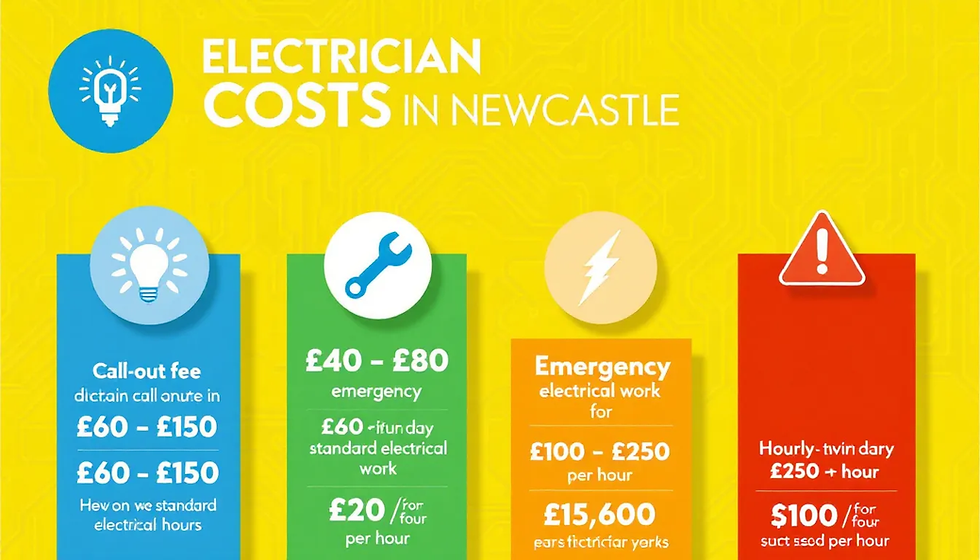Top 10 Most Power-Consuming Electrical Appliances in UK Homes
- cdaws35

- Apr 21, 2023
- 3 min read
Updated: Feb 25
As we strive to become more energy-efficient and eco-conscious, it's essential to know which electrical appliances consume the most power in our homes. By identifying these appliances, we can take steps to reduce their energy consumption and, in turn, lower our energy bills and carbon footprint. In this blog post, we'll discuss the top 10 most power-consuming electrical appliances in UK homes.

1. Heating
In the UK, heating accounts for approximately 60% of the total energy consumption in a household. With cold winters and cool summers, it's essential to keep our homes warm and comfortable. However, heating can be a significant contributor to high energy bills. It's important to use your heating system efficiently, such as setting a timer to turn it on and off at specific times, keeping the thermostat at an appropriate temperature, and ensuring proper insulation in your home.
2. Cooling
During the hot summer months, air conditioning and fans can consume a lot of electricity, which can lead to high energy bills. To reduce energy consumption, it's important to keep the temperature at a reasonable level and to use energy-efficient air conditioning units and fans. You can also consider using natural ventilation methods such as opening windows and doors to cool your home.
3. Water heating
Water heating accounts for approximately 15% of the energy consumption in a household. The use of hot water for bathing, washing clothes and dishes, and other household activities requires a lot of energy. To reduce energy consumption, it's essential to use hot water efficiently, such as taking shorter showers, washing clothes in cold water, and using a dishwasher instead of handwashing dishes.
4. Refrigeration
Refrigerators and freezers are constantly running and consuming electricity, making them one of the most significant energy-consuming appliances in a household. To reduce energy consumption, it's important to choose energy-efficient models, ensure proper maintenance, and avoid opening the doors unnecessarily.
5. Lighting

Lighting can be a significant contributor to high energy bills. By using energy-efficient light bulbs, such as LED bulbs, and turning off lights when not in use, you can significantly reduce energy consumption and save money on your energy bills.
6. Laundry
Washing machines and dryers consume a lot of electricity, especially when used frequently. To reduce energy consumption, it's important to choose energy-efficient models, avoid overloading the machines, and hang clothes to dry instead of using a dryer.
7. Cooking
Cooking appliances, such as ovens, stoves, and microwaves, can consume a lot of electricity, especially when used for long periods. To reduce energy consumption, it's important to choose energy-efficient models, use the right size pots and pans, and avoid preheating the oven for too long.
8. Electronics

Electronics such as TVs, computers, and game consoles are often left on standby mode, consuming electricity even when not in use. To reduce energy consumption, it's important to turn off electronics completely when not in use or use a power strip to cut off power to multiple devices at once.
9. Home office equipment
Home office equipment, such as printers, scanners, and fax machines, can consume a significant amount of electricity, especially when left on standby mode. To reduce energy consumption, it's important to turn off these devices completely when not in use or use energy-saving features, such as sleep mode.
10. Small appliances
Small appliances such as toasters, kettles, and coffee makers can consume a lot of electricity if used frequently. To reduce energy consumption, it's important to use energy-efficient models, avoid overfilling kettles and pots, and turn off small appliances when not in use.

Conclusion
The appliances we use in our homes play a significant role in the amount of energy we consume and, in turn, the cost of our utility bills. Being aware of the energy consumption of these appliances and taking steps to reduce their usage can help us save money on our energy bills and reduce our carbon footprint.
It is essential to note that the cost of utility bills in the UK is currently on the rise, making it even more crucial for us to take measures to reduce our energy consumption. According to Ofgem, the energy price cap increased by £139 in October 2021, with the average household energy bill set to increase by around £139 per year. This means that being mindful of our energy consumption is now more important than ever.
By making simple changes such as using energy-efficient light bulbs, switching off appliances when not in use, and purchasing energy-efficient appliances, we can significantly reduce our energy consumption and ultimately save money on our bills. It is crucial to be conscious of our energy usage and make informed choices when purchasing appliances for our homes.
As we continue to strive for a more sustainable future, reducing our energy consumption and transitioning to more energy-efficient appliances is a crucial step in the right direction. Let us all do our part in reducing our carbon footprint and preserving our planet for future generations.
_edited.png)



Comments